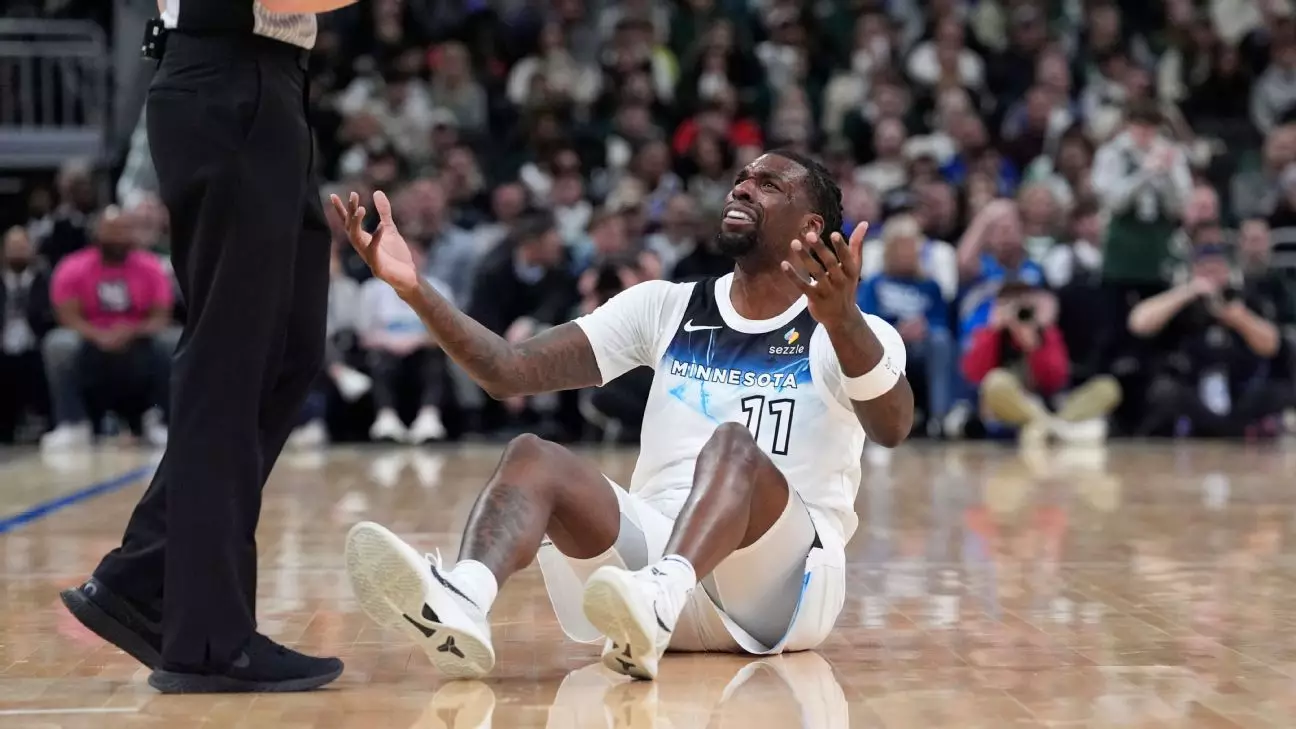The Minnesota Timberwolves experienced a gut-wrenching defeat against the Milwaukee Bucks, a game that epitomized the volatile nature of the NBA’s Western Conference playoff race. It was a game that offered a glimmer of hope, only to see the team’s hard-earned 24-point lead evaporate in a heart-stopping fourth quarter. The Timberwolves had set themselves up nicely, leading 95-71 as the final quarter dawned, only to succumb to a staggering 39-8 run by the Bucks, ending the game at 110-103 and shattering their five-game win streak.
While this defeat was undeniably shocking, it also serves as a harsh reminder of the brutal stakes involved in the cutthroat environment of professional basketball. Coach Chris Finch was right when he expressed confidence in his team’s ability to rebound from this heartbreaker. However, zip it up and shake it off is much easier said than done, particularly when you consider the psychological weight that accompanies such dramatic swings in fortune.
Statistical Anomalies and Historical Context
This loss marked a peculiar milestone in NBA history; according to Sportradar, it was only the fifth instance since 1996-97 where a team came back from a 24-point deficit in the fourth quarter to win without requiring overtime. Only three of those games have ever concluded without the need for an extra period, emphasizing how rare and extraordinary such comebacks truly are. These statistics not only bespeak the improbability of the Timberwolves’ fall but also highlight the dramatic unpredictability that defines NBA storytelling.
It’s difficult to ignore the striking contrast between the Timberwolves’ earlier dominance and their dismal finale. Guard Donte DiVincenzo pointed out that they played excellent basketball for three quarters, a sentiment that echoes throughout their roster. But basketball is a game of four quarters, and the Timberwolves were helpless as the Bucks tweaked their game strategy to introduce a zone defense, which completely thwarted Minnesota’s offensive schemes during that critical closing stretch.
Breaking Down the Breakdown
In an era where a team’s ability to adapt is crucial, the Timberwolves struggled to respond to Milwaukee’s tactical shift. They stumbled through the fourth quarter, shooting just 4-of-20 from the floor and an abysmal 2-of-12 from beyond the arc, in addition to committing eight costly turnovers. All-Star Anthony Edwards succinctly captured the essence of their plight when he noted that the zone “messed us up.” The Timberwolves’ struggles against a zone defense are a glaring weakness that teams are likely to exploit moving forward.
This raises a critical question: Can the Timberwolves learn from this experience or will it become a recurring theme? Forward Julius Randle insinuated that teams may adapt their game plans to include more zone defense against Minnesota. While it is essential for competitors to innovate, it’s equally crucial for the Timberwolves to devise countermeasures, or else they risk falling into a quagmire that could cost them postseason aspirations.
Seizing Opportunities and Looking Ahead
Despite this stunning setback, the Timberwolves have ample opportunities to climb back into a favorable playoff position. Only one game separates them from fourth place, where they would secure home-court advantage for the first round. The current circumstances, rife with potential pitfalls for their rivals, could very well become a turning point for Minnesota.
With their final five-game road trip wrapping up against the Memphis Grizzlies—a team reeling from the loss of starting guard Jaylen Wells—Minnesota stands at a crossroads. They also have home games remaining against lottery-bound teams like the Brooklyn Nets and the Utah Jazz, creating an advantageous landscape to finish strong. What’s more, other teams in the hunt are slated to face each other, guaranteeing at least one loss for their competitors in this frenetic playoff race.
The Timberwolves still have the momentum of a strong overall record in the Western Conference, which continues to fuel their prospects for a successful playoff run. All eyes will be on this team as they strive to reclaim their footing and solidify their standing in a fiercely competitive environment. The challenge is daunting, yet the potential for redemption is undeniable.
In the world of sports, it’s imperative to remember that every setback is not a failure but a lesson; the real champions are defined by how they respond in moments like these. With grit and determination, the Timberwolves will aim to use this brutal experience as a catalyst for growth, gearing up to fight for their place in the postseason.

